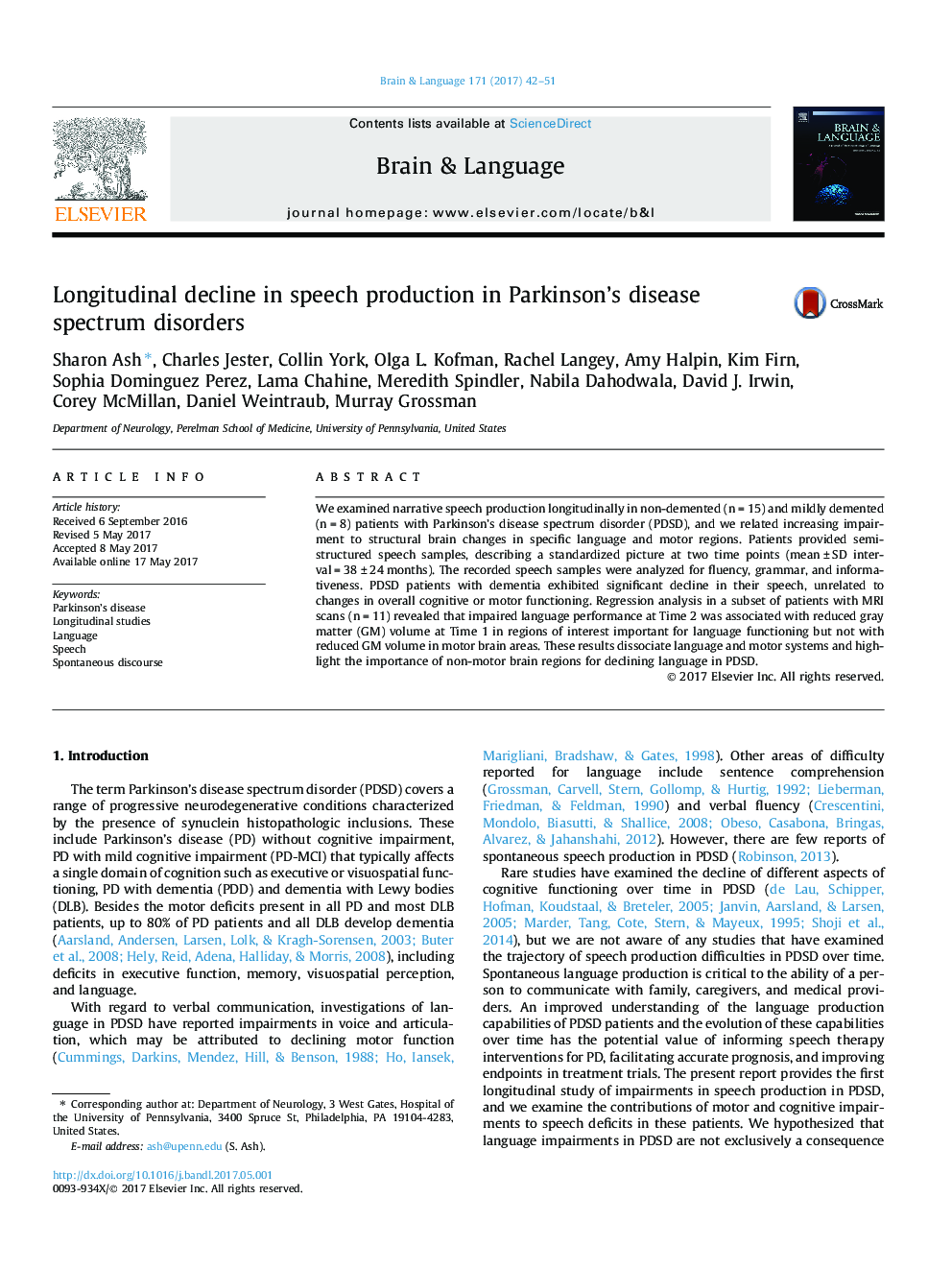| Article ID | Journal | Published Year | Pages | File Type |
|---|---|---|---|---|
| 5041273 | Brain and Language | 2017 | 10 Pages |
â¢Speech was studied longitudinally in Parkinson's disease spectrum disorder (PDSD).â¢Gray matter (GM) volume was assessed in motor and language-related brain regions.â¢Demented PDSD patients declined over time in fluency, grammar, and informativeness.â¢Reduced GM volume in language-associated brain regions predicted decline in speech.â¢There was no association of language variables with reduced GMP in any motor areas.
We examined narrative speech production longitudinally in non-demented (n = 15) and mildly demented (n = 8) patients with Parkinson's disease spectrum disorder (PDSD), and we related increasing impairment to structural brain changes in specific language and motor regions. Patients provided semi-structured speech samples, describing a standardized picture at two time points (mean ± SD interval = 38 ± 24 months). The recorded speech samples were analyzed for fluency, grammar, and informativeness. PDSD patients with dementia exhibited significant decline in their speech, unrelated to changes in overall cognitive or motor functioning. Regression analysis in a subset of patients with MRI scans (n = 11) revealed that impaired language performance at Time 2 was associated with reduced gray matter (GM) volume at Time 1 in regions of interest important for language functioning but not with reduced GM volume in motor brain areas. These results dissociate language and motor systems and highlight the importance of non-motor brain regions for declining language in PDSD.
